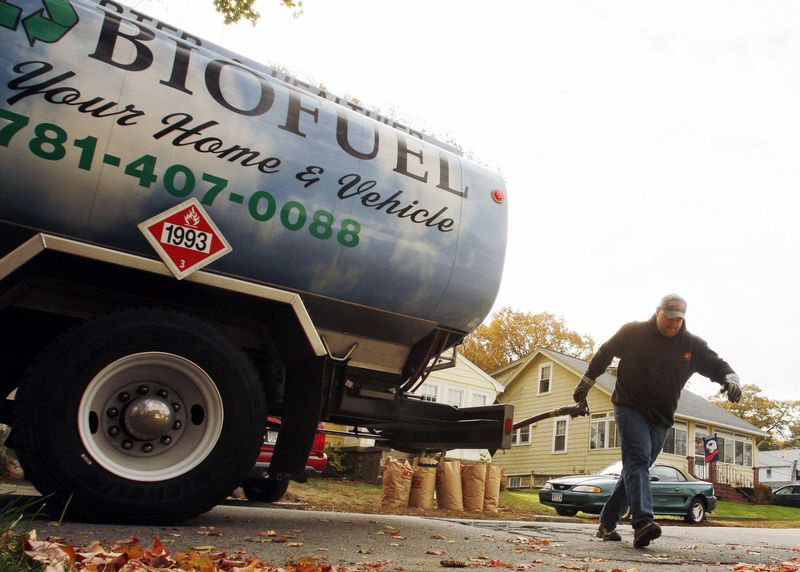 © Reuters. To match feature ENERGY USA/BIOFUELS
© Reuters. To match feature ENERGY USA/BIOFUELSBy Jarrett Renshaw
NEW YORK (Reuters) – The White House is considering imposing restrictions on trading of biofuel credits, hoping to discourage speculation and reduce costs for oil refiners to comply with U.S. biofuels policy, according to three sources familiar with the discussions.
The sources, who asked not to be named because they are not authorized to comment on the discussions, said an announcement could be made in coming weeks. The move would be part of a widely anticipated deal to help U.S. corn farmers and biofuels producers by lifting a ban on summer sales of higher ethanol blends of gasoline.
U.S. President Donald Trump has repeatedly said he supports lifting that ban on so-called E15 gasoline to help expand the market for corn. This could also bolster vulnerable Midwest Republican members of the U.S. Congress in competitive races heading into the November elections, and appease corn farmers stung by Trump’s escalating trade wars.
But lifting the ban could draw legal challenges from the oil industry, which worries such a move would eat into their market share.
The White House and the Environmental Protection Agency, which administers U.S. biofuels regulations, did not immediately respond to requests for comment.
The U.S. Renewable Fuel Standard requires refiners to blend increasing amounts of biofuels like ethanol into the fuel pool each year, or buy credits from competitors who do. Refining companies that must buy the credits have complained about volatile prices in recent years.
The White House is considering trade restrictions such as capping the number of credits a dealer can hold at 120 percent of their company’s annual compliance obligation, the sources said. It is also considering restricting certain parties from holding the credits for more than 30 days. Such moves could prevent credit traders from hoarding credits to pump up prices artificially.
Some refiners that have complained of high credit prices, such as like PBF Energy (N:) and Valero Energy Corp. (N:), may welcome such restrictions. But other fuel companies that have managed to land trading profits in the credit market are likely to oppose the plan.
Biofuel credit prices were near five-year highs last year, but have dropped sharply to their lowest since 2013, due mainly to the EPA’s expanded use of waivers freeing small refiners from their obligations.
Trump is expected to direct the EPA to seek a rule lifting the E15 ban during a trip to Iowa in October, sources told Reuters. The ban was put in place as an anti-smog measure, though studies have since shown its environmental benefits are limited. The rule would have to be fast-tracked to have it finalized before the next summer driving season.
This is not the first time Trump has waded into the debate over biofuels policy which pits two groups that have supported him against each other: farmers and refiners. He tried to broker a deal between the rival corn and oil industries earlier this year, but those efforts stumbled as the corn lobby dug in its heels against certain changes.
Fusion Media or anyone involved with Fusion Media will not accept any liability for loss or damage as a result of reliance on the information including data, quotes, charts and buy/sell signals contained within this website. Please be fully informed regarding the risks and costs associated with trading the financial markets, it is one of the riskiest investment forms possible.
Source: Investing.com





























